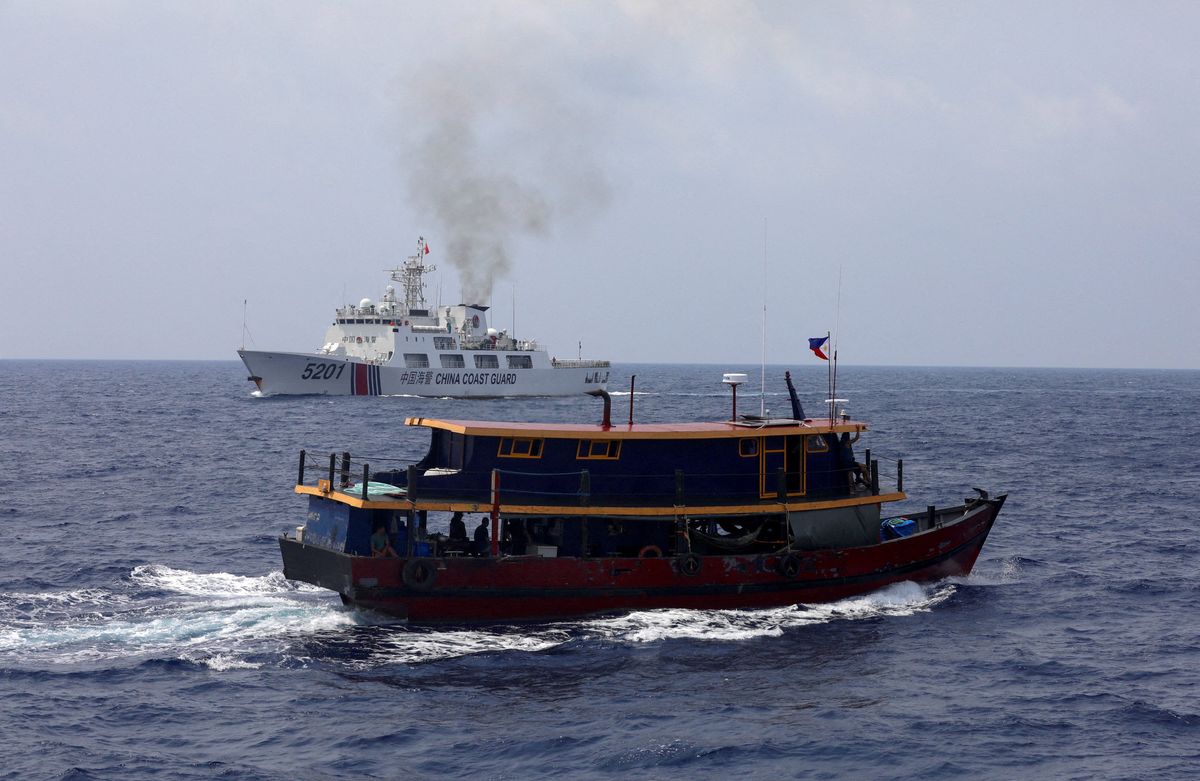In the lead-up to the upcoming meeting between US President Joe Biden and Chinese President Xi Jinping at the APEC Summit in San Francisco, America’s China policy chief sat down with Beijing’s top border official to discuss the increasingly volatile situation in the South China and East China Seas.
US Department of State’s China Coordinator Mark Lambert spoke with Chinese Foreign Office’s Director-General for Boundary and Ocean Affairs Hong Liang in Beijing, with both sides attempting to lower the temperature after another week of tensions in the region.
On Friday, Canadian Defence Minister Bill Blair accused Chinese warplanes of buzzing a Canadian helicopter over international waters in the South China Sea and firing flares at it, endangering the crew. On Saturday, China’s Defence Ministry hit back that the helicopter had “unknown intent” and engaged in a “malicious” and “provocative” act with “ulterior motives.”
These salvos come the same week that China accused a Philippine military vessel of sailing too close to Scarborough Shoal, territory that China seized in 2012, but which falls within the Philippine’s Exclusive Economic Zone according to international maritime law. And late last month, Manila accused a Chinese coast guard ship of ramming two Philippine ships near Second Thomas, or Ayungin, Shoal, which also lies within its EEZ.
This backdrop sets the tone not only for Biden and Xi’s meeting, but for Taiwan’s presidential elections, scheduled for January 2024. According to Rick Waters, managing director of Eurasia Group’s China practice and, until recently, the State Department’s deputy assistant secretary for China and Taiwan, “The challenge for the [US] president going into the meetings in San Francisco is going to be this: if you look carefully at what the Chinese say about Biden and about his Taiwan policy, they don’t doubt his intentions.” Biden has stated on four occasions that the US would defend Taiwan in the event of an attack by China.
Some observers believe US diplomatic efforts are geared to avoid opening a third front in addition to the conflicts in Ukraine and Israel, which would strain Washington’s military and economic resources. We will be watching to see whether Biden’s diplomacy can successfully calm the waters.- Israel control in Gaza: No end in sight - GZERO Media ›
- When Biden Met Xi (and What's Going On with the US and China) | TED - GZERO Media ›
- US CEOs too influential on China policy, says Rahm Emanuel - GZERO Media ›
- US-China relationship at its most stable in years as Yellen visits - GZERO Media ›
- Ian Explains: Xi Jinping's nationalist agenda is rebuilding walls around China - GZERO Media ›
- Where the US & China agree - and where they don't - GZERO Media ›






